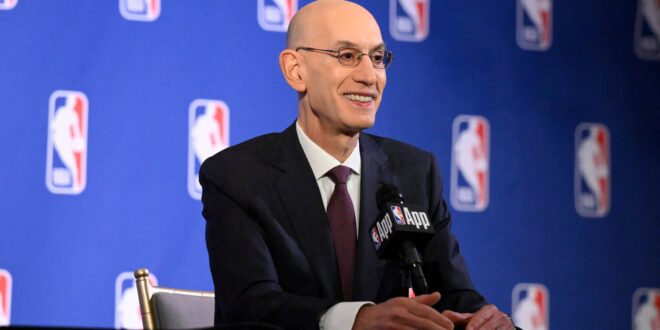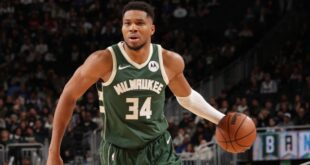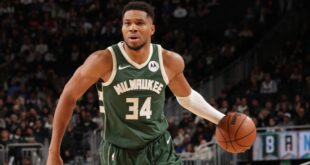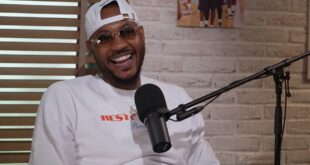LAS VEGAS – Over the past twenty years, the NBA’s footprint in this vibrant city has expanded significantly, evolving from a few summer teams holding tryout exhibitions to a full-fledged 30-team league convention. In light of this growth, Commissioner Adam Silver has come to refer to Las Vegas as “the 31st franchise.”
This designation is informal but reflects the appreciation for the NBA 2K26 Summer League and what it contributes to the league during its eleven-day run each July. However, discussions about the potential for a 31st or even 32nd franchise were part of the agenda earlier on Tuesday at the annual offseason Board of Governors meeting conducted at an upscale resort on the Las Vegas Strip.
No celebratory toasts were made in cities like Seattle, Mexico City, or any other locations eager for an NBA franchise. Nevertheless, the league took a significant step, as Silver described it, by assigning a committee to conduct a thorough evaluation of potential expansion, considering both the economic and non-economic ramifications.
This analysis will encompass everything from the estimated costs of new franchises to the effects on shared broadcasting revenue, the marketing opportunities in new NBA territories, and the challenge of securing sufficient star players and supporting talent for additional teams.
“When I look at the room during the Board of Governors meeting, I sense more of a curiosity and a willingness to engage in this work,” Silver stated when asked about the governors’ interest in expansion. He addressed reporters during a news conference at the Thomas & Mack Center on the UNLV campus while two summer league games were in progress.
“If I were an owner, the key consideration is whether adding new teams would enhance the league,” he noted. “Enhancements can manifest in various forms, including economic benefits and competitive dynamics that a particular market could bring to our national scope.”
The examination of expansion will be a cooperative effort between the league’s Advisory Finance committee and its Audit & Strategy committee. The commissioner also indicated that the inconsistent nature of local and regional television coverage would be part of the study.
For NBA fans in Seattle, Las Vegas, or other cities hoping to join the league, the gradual approach Silver described might come across as disheartening. It could be several years before a specific city or ownership group even has the opportunity to feel disappointment officially.
“I wish I could stand here as commissioner and hand out franchises to all those markets eager for NBA basketball,” Silver expressed when speaking to a reporter from Seattle, where the league operated from 1967 until 2008, when the team relocated to Oklahoma City.
Seattle is viewed by some as a leading candidate when the league expands, which Silver described as an “incredible” market, especially with the presence of a successful WNBA team.
Still, he emphasized, “We have a responsibility to approach any expansion thoughtfully and in a manner that benefits the league as a whole. That’s the best stance I can take.”
What is clear is that the entry fee for any new team will likely have risen considerably, due to the recent valuations of the Boston Celtics and Los Angeles Lakers, estimated at $6.1 billion and $10 billion, respectively.
“Had we pursued expansion five years ago,” Silver remarked, “we would have undervalued the market.”
During the news conference, Silver also addressed various topics:
– **Concerns regarding sports betting investigations:** Both current NBA players, Malik Beasley and Terry Rozier, are being investigated for possible betting irregularities. Silver mentioned that the NBA is collaborating with authorities and pointed out how legalized betting brings formal oversight, contrasting with the risks associated with illegal gambling.
The NBA engages with betting organizations, and Silver compared the risks of illicit behavior to those present in the stock market.
“The existence of insider trading doesn’t necessitate closing down public markets,” he explained. “Often, insider traders are caught because of sophisticated systems that identify abnormal behavior.”
He acknowledged the challenges posed by proposition bets, which are often based on individual player stats rather than overall team performance, raising concerns about player control over these bets.
“We lack control over the specific wagers made on our games. Some of these bets are indeed concerning,” Silver stated.
Nevertheless, the league possesses the authority to address poor decision-making.
“Any player involved in such activities undeniably jeopardizes their career,” Silver stressed. “It’s crucial for us to communicate this message to our players and anyone connected to our community.”
– **The balance between parity and dynasties:** Oklahoma City’s recent victory in the 2025 Finals marked the seventh consecutive championship won by a different team, a trend that suggests the mechanisms within the league’s collective bargaining agreement are fostering a competitive environment where well-run franchises can succeed.
Still, Silver does not wish to suggest that the league is aiming to eliminate dominant teams altogether. The NBA thrived during the glory years of the Celtics, Lakers, Bulls, and Spurs.
“I’m completely okay with dynasties,” he acknowledged. “I appreciate the current state of play. I can’t say we’ll never see dynasties again. I’m sure Sam Presti, executive vice president and GM of the Thunder, wouldn’t want to hear that.”
– **The sale of the Portland franchise:** The Trail Blazers, put on the market by the estate of the late owner Paul Allen in May, are expected to undergo a lengthy sale process. Silver expressed a preference for the team to remain in Portland but noted that “a new arena is likely necessary, which will present a challenge for any prospective ownership group.”
– **Streaming customer data:** The newly established 11-year, $76 billion broadcast agreement ensures that every NBA game, including those on over-the-air (ABC, NBC) and cable (ESPN), will be available for streaming. This new approach contrasts with past methods of measuring audiences through one-dimensional Nielsen ratings, as it will enable the league to collect valuable consumer data.
“It’s about understanding your consumers and tailoring your content to meet their preferences,” Silver remarked. “Streaming provides us with that advantage.” Viewers will have access to various game feeds, camera angles, player insights during games, and opportunities for merchandise.
Adam Silver addressed the media in Las Vegas, shedding light on expansion and other significant topics during his latest press conference.
* * *
Steve Aschburner has been covering the NBA since 1980. You can reach him by email, find his archive, and follow him on X.
 NBA News NBA News, Match Reports and Updates
NBA News NBA News, Match Reports and Updates



